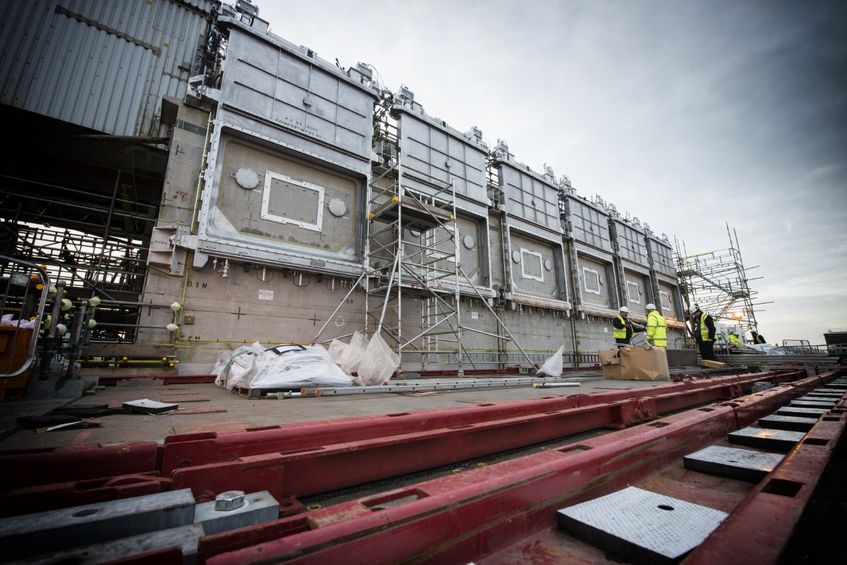
Tackling one of the four most hazardous buildings in Western Europe
The Pile Fuel Cladding Silo (PFCS) is a legacy silo on the Sellafield site which was built in the 1950’s and over the following few decades was filled with waste. It is one of the most significant radiological challenges in the UK. We have been involved in the project since 2012, designing and installing access doors and remote-handling equipment to retrieve decades-old nuclear waste from sealed compartments in the PFCS building, described as one of Europe’s most hazardous.
The challenge involved delivery of plant and equipment capable of accessing the historic waste, removing it and transferring it into containers for safe interim storage. We adopted a fully integrated, ‘one team’ approach, with the client embedded into the project delivery team from the outset and was an outstanding example of Joint Venture working in collaboration with Sellafield Ltd.
The project was delivered three years ahead of schedule and realised savings inexcess of £400m against the previous scheme.
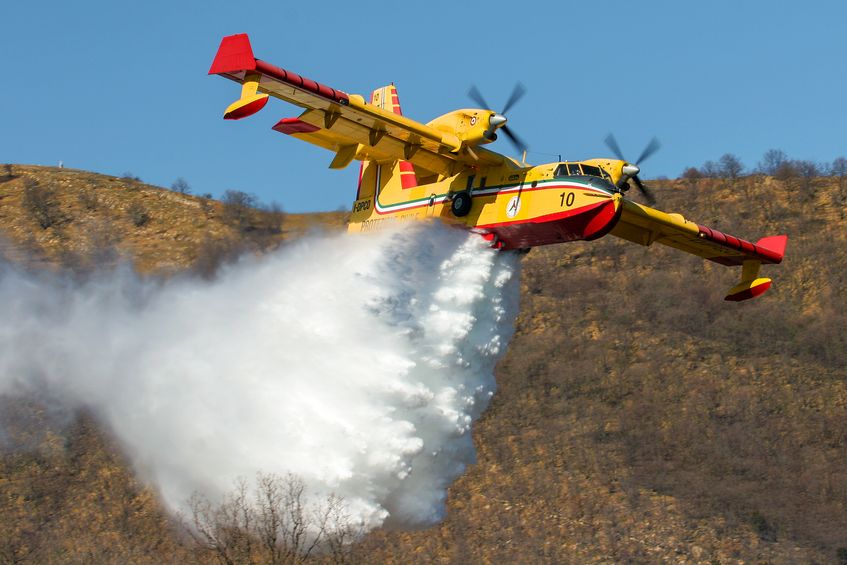
Fighting fire with ingenuity
In 2018, the Manitoba Department of Sustainable Development revaluated its wildfire suppression services. It wanted to determine the optimal way to support its residents and communities. Babcock was awarded the 10-year contract for delivering a Wildfire Suppression Service that would protect over 649,950km2 of land and a population of 1.3 million people. After establishing a centre for aviation in Winnipeg, Manitoba, and setting up three satellite bases, we began managing, maintaining and operating a fleet of seven Canadair water-bomber amphibious aircraft.
The inaugural season in 2019 was a success, surpassing the customer’s expectations. With 99.7% availability, the team was called out to 277 wildfires, flew 364 missions and made 4,092 drops.
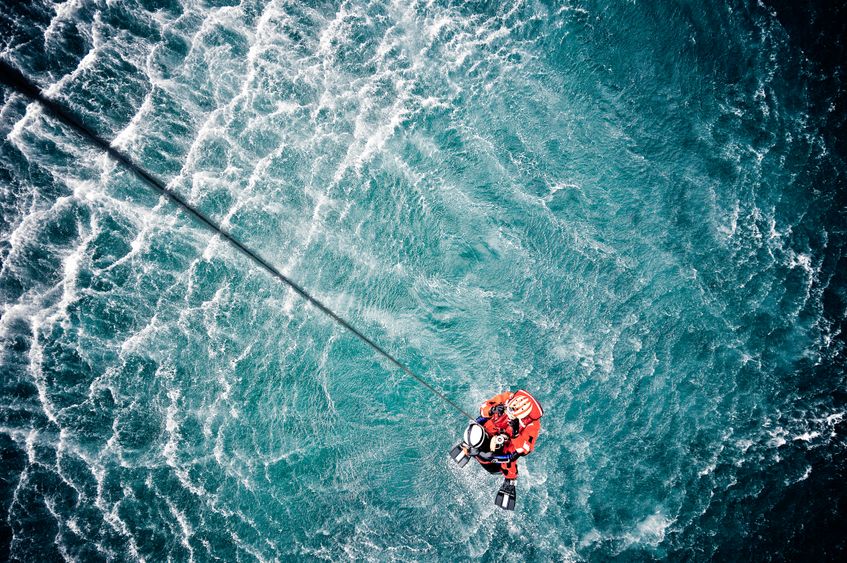
Delivering world-class search and rescue
Working on behalf of SASEMAR (the Spanish Maritime Safety Agency), we carry out vital search and rescue missions with responsibility for everything from crewing and carrying out the operations themselves through to managing mission-specific equipment and servicing the aircraft.
We respond to drifting ships, emergency medical situations in maritime locations, distress calls from oil platforms, environmental spillages, border control issues and many other complex maritime emergencies. We’ve also developed specialist training to cater to the hostile environments in which most of the SASEMAR missions take place. In 2019, our teams flew more than 7,800 hours across our SASEMAR and other search and rescue contracts.
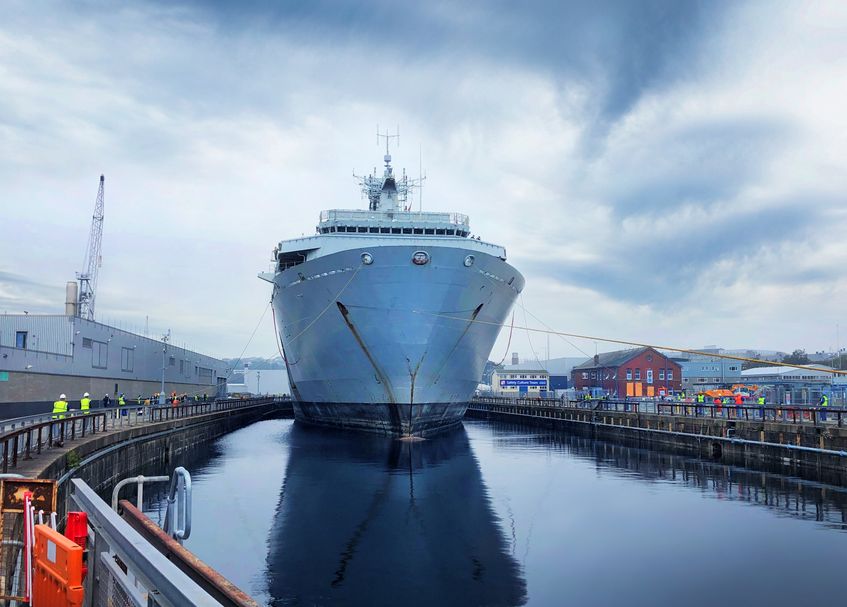
HMS Bulwark successfully docked
Docking is a major milestone for any warship that is undergoing maintenance and in 2020, as part of its regeneration, HMS Bulwark successfully docked down at our Devonport site.
Having completed phase one of its Optimised Support Period, docking the 176m, 19,560 ton amphibious assault ship marked the beginning of phase two, which will see Babcock undertake some substantial engineering works including the complete overhaul of approximately 7,500 cubic tonnes of water ballast tanks, which are used to ballast the ship down for amphibious operations, and the introduction of further capability upgrades ahead of delivering the vessel back to the Royal Navy.
The project, which includes approximately 100 engineers and 300 highly skilled technicians from Babcock, is different to a usual overhaul with the team pioneering an alternative approach to HMS Bulwark’s planned upkeep period by adopting a collaborative enterprise, alongside with Defence Equipment & Support (DE&S) and the Royal Navy, to further enhance the material state of the vessel.
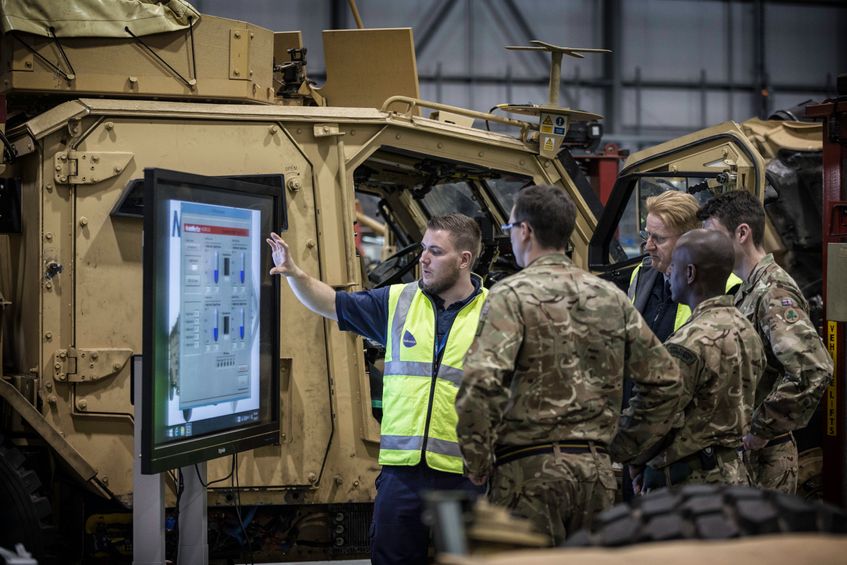
Supporting high fliers
Inspiring, training and supporting the Defence School of Electronic and Mechanical Engineering (DSEME) at MOD Lyneham and the Defence School of Marine Engineering (DSMarE) at HMS SULTAN. In compliance with the Defence Systems Approach to Training (DSAT), Babcock is leading the way through work with STEM education establishments, and with the development of media, graphics and virtual learning to support trainers and students enabling them to access course material before, during, and after their formal training.
Babcock collaborated with the Royal Navy to create the first virtual reality trainer to enhance marine engineering diagnostic competency, allowing students to interact with multiple systems to determine the root cause of faults.